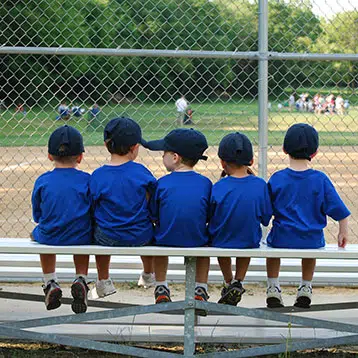When I was about 13, I had a bad temper — so bad that I quit playing golf.
When I played poorly (which was most of the time), I would throw clubs and say things I was not allowed to say at home. It made the game unpleasant for my playing partners and an occasion of sin for me.
I have found myself reflecting on my misspent youth while watching the Winter Olympics this month. A lot of the athletes on the American team are teenagers not much older than I was when I was flinging clubs around the golf course.
Red Gerard, Vincent Zhou, Chloe Kim and Tess Johnson are 17 years old. Karen Chen and Nathan Chen (no relation) are 18.
Every four years, the performance demands on Olympic athletes seem to increase. Five different types of quadruple jumps for a skater. Two 1440s in the halfpipe for a snowboarder. Speed records in luge (is that really a sport?).
Teenagers like the ones in Pyeongchang have spent most of their lives practicing to compete at this level. I am impressed by how well they do. But they’re young and flexible and crazy. In a way, we almost expect it.
The thing I have been more interested in is their performance after their events. The years of preparation they have put in — and a year is a long time when you’re young — could result in a big disappointment.
It all comes down to just a couple minutes on ice (ice!) or bumpy snow. One blink or twitch, one bad patch, and it could be all over. For many of them, it is. For most of them, there will be no medal and no other opportunity for one.
I don’t think I have ever played for stakes that high in anything I have done.
But here is the other thing. These teenagers perform in an environment where someone is filming their every move and facial expression. It has to be worst for the figure skaters. Skiers and snowboarders get to wear helmets, so you can only read their body language.
But for all of them, we fully expect that they’ll give nothing away, however badly things go. That they’ll smile for the winner. That right away, with no time to recover their poise, they will give a gracious interview when approached; no excuses, no complaints about the judges.
We have a right to expect our Olympic athletes to behave better than I used to. They are representing America, after all. But their entire Olympic career is like a yearslong high-wire act.
They are constantly under such pressure that it’s hard to imagine how they keep it together, especially in failure.
There’s a big difference between being a good athlete and being a good sport, but there is some overlap between the two. These young people, even the successful ones, have faced adversity and failure on their way to the top.
As a result, they have had to practice all the skills required of an Olympic athlete, including public relations and good sportsmanship. The day they flop on the biggest stage of their lives, they don’t have to summon up a graceful interview performance for the first time.
This is how we form good habits in real life as well. It’s a lot easier to do the right thing, to be patient, to tell the truth, to exhibit courage, to resist temptation, if we are used to doing it day in and day out.
And when a big test comes, we’ll be more ready.
Garvey is president of The Catholic University of America in Washington..


